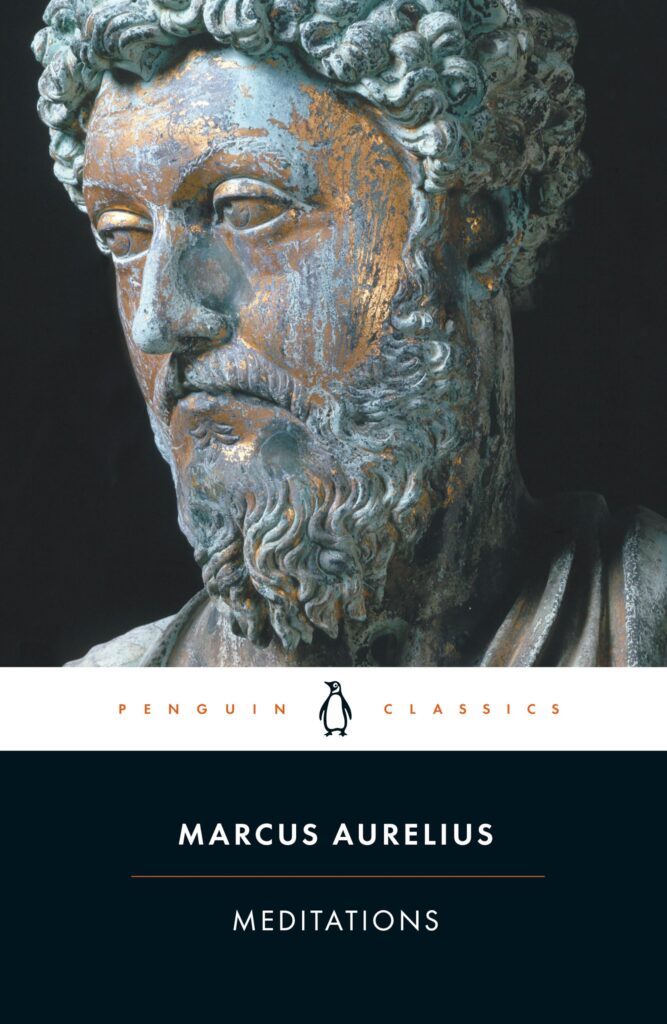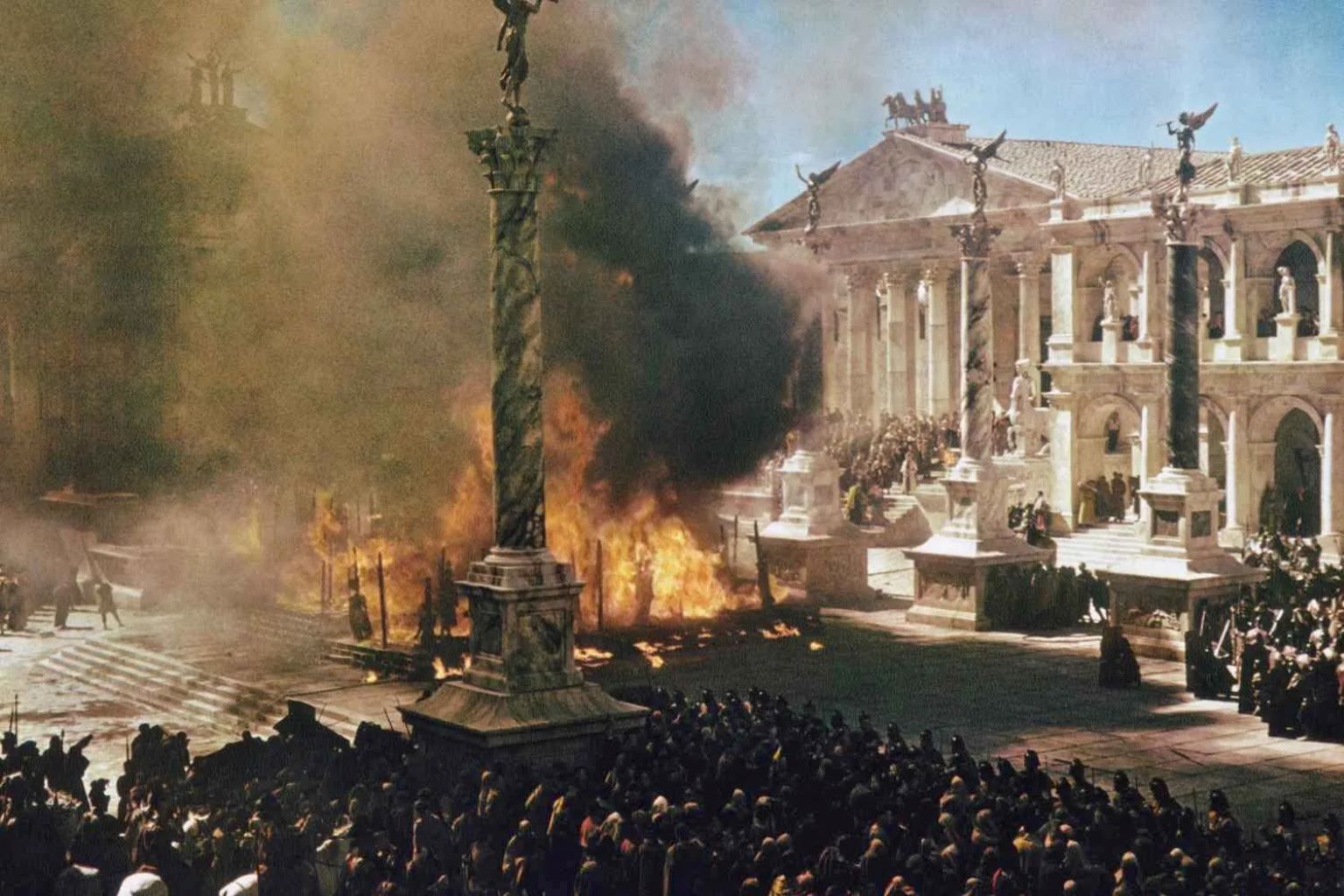The fall of Rome is rarely told in a way that makes you want to keep reading. You open a book expecting crumbling empires, betrayal, and war, but the pages stretch out like a lecture hall. And still, somewhere under all that, is one of the most fascinating stories we’ve ever heard.
We forget that the collapse was human, and that fear, famine, belief, and ego all played their part. The books that bring us close to that walk us through the empire, in all its glory and its downfall. These are the best books on the fall of Rome, but before we move to the list, let’s pause to understand what keeps this collapse so alive in our imagination.
Why The Fall Of Rome Still Fascinates Us
They say Rome wasn’t built in a day, and it didn’t fall in a day either. It took centuries, and its politics, failures, and the patterns of decline are still being studied today.
Did you know that at its height, the Roman Empire stretched across three continents and had over 250,000 miles of roads, some of which still remain today, outlasting the ruins?
The fall of Rome wasn’t a single event, and there was no final battle. It came in waves, with some saying it began with weak leadership and others saying it was:
- Greed
- Military overreach
- Climate shifts
- The rising strength of the Eastern Empire
And then, of course, there were the invasions of the Goths, Vandals, and Huns, which were testing borders that had already begun to crack. Still, it wasn’t just swords and sieges; it was also:
- Inflation
- Mistrust
- A slow erosion of civic life
The West fell in 476 CE, but even that date is debated because one thing Rome does not come with is a neat ending.
We’re drawn to it because it fell in ways that feel unnervingly familiar, and somehow the story resists simple answers. It’s gradual, confusing, avoidable in theory, but impossible to stop in motion. We return to it not just for the facts, but also for the questions it leaves behind. What makes something too big to fail? And what does it look like when it fails anyway? To answer some of those questions, let’s get into the books, shall we?
1. The Fall of the Roman Empire: A New History of Rome and the Barbarians by Peter Heather
Genre: Historical nonfiction
Heather tells the story of collapse with sharp focus on the “outsiders”: the Goths, Huns, and other groups traditionally blamed for Rome’s undoing. But his real strength is in showing how those invasions collided with internal weakness.
“Rome fell because the empire had become a target, and its enemies had grown stronger.”
It’s bold, layered, and rich with detail, and especially readers who want to dig into Rome’s shifting borders, diplomacy, and slow strategic failure will find this book both accessible and illuminating. Heather gives shape to the chaos without flattening its complexity.
2. The Fall of Rome: And the End of Civilization by Bryan Ward-Perkins
Genre: Historical nonfiction
Ward-Perkins doesn’t try to romanticize decline; rather, he leans into the loss of trade, literacy, and safety. He paints a picture that’s both sobering and deeply readable. This is a book that argues with care, and it offers a powerful counterpoint to theories of “peaceful transformation.”
“The end of Rome was not a gentle slide, but a violent break.”
It’s not just emperors and invasions here; it’s also pottery, coin hoards, collapsed infrastructure, and forgotten skills. For anyone trying to trace the real causes of the Roman Empire’s fall, this is essential reading. It shows how the everyday is often the first to go.
3. How Rome Fell: Death of a Superpower by Adrian Goldsworthy
Genre: Historical nonfiction
This is a carefully built account of how an empire begins to crumble from the inside. Goldsworthy writes with clarity and weight, grounding his research in military decline, political drift, and the fragility of systems stretched too thin. If you’re only reading one book on the fall of Rome, start here.
“Rome did not fall because it was destined to do so. It fell because it could no longer hold itself together.”
Goldsworthy will not rush; he will patiently guide you through the third-century crisis, the slow recovery that followed, and the fractures that came after. For readers wondering how to choose books on the decline of Rome, this one sets the tone by offering both insight and storytelling.
4. The Death of Caesar by Barry Strauss
Genre: Historical fiction (based on real events)
As you read more about Rome, you’ll come across a few names again and again. Julius Caesar is one of them. He was a military general, statesman, and dictator for life who shaped the very idea of Roman power and its undoing.
Clocking in at just over two-fifty pages, this book is a potent dagger that will land a blow. Strauss offers a gripping retelling of Caesar’s assassination, told through the eyes of senators, slaves, and soldiers.
“Assassins rarely bring peace. More often, they ignite what they hoped to avoid.”
This book makes you feel what it would be like to stand among senators as history unfolded; it completely transports you there. It moves with the urgency of a thriller but never loses its grip on fact.
RELATED READING: 15 Fascinating Facts About The Colosseum
5. Daily Life in Ancient Rome by Jérôme Carcopino
Genre: Historical nonfiction
If you’ve ever wondered what Romans ate, wore, whispered, or even feared, this book delivers all the details to you on a page. Carcopino steps away from emperors and battlefields to explore the texture of Roman life: its streets, homes, gossip, rituals, and contradictions.
“The Roman citizen was shaped more by his street than his senate.”
This is a quiet, observant book built from fragments and findings. For anyone building a fuller picture of the empire from the inside out, this remains one of the best books about Roman history, especially daily life.
6. Roman Women: The Women Who Influenced the History of Rome by Eve D’Ambra
Genre: Historical nonfiction
History doesn’t always leave room for women’s voices, but D’Ambra finds what remains. She traces how women moved through Roman society as wives, priestesses, entrepreneurs, and icons.
“Their lives were not silent, only silenced.”
And the bonus to it all is that this book is just about two hundred pages! That makes it a focused and rewarding read. Through art, letters, and funerary records, the book allows us glimpses into the lives of women who shaped domestic power and public identity.
For those asking why did Rome fall, this book shows the parts of society that don’t always make it into military timelines but still hold the empire’s weight. It is in the essentials list for readers curious about overlooked perspectives.
7. Cleopatra: A Life by Stacy Schiff
Genre: Biography
Cleopatra’s name is everywhere: framed in gold, paired with power, whispered in stories of seduction and ruin. But did you know she ruled Egypt for over two decades, spoke nine languages, and was the only Ptolemaic ruler (of Greek origin, not native Egyptian) who learned to speak Egyptian?
In this biography, Schiff peels away the legend to reveal someone far more interesting: a strategist who understood timing, narrative, and how to hold her ground.
“She had to choose her moment. And when she did, she did not miss.”
Seen through Cleopatra, Rome becomes sharper in contrast. Her presence shifted its politics, its future, and its fears.
8. The Fate of Rome: Climate, Disease, and the End of an Empire by Kyle Harper
Genre: Historical nonfiction
Harper offers a new lens: what if nature helped bring Rome down? This book blends history with science, exploring how pandemics, plagues, and climate shifts played a part.
“The end came not from a single enemy, but from a collapsing balance with the world.”
It’s part data, part narrative, and entirely gripping. Harper doesn’t replace politics or war; he expands the lens. For readers who want a deeper understanding of the fall, this book offers a necessary, modern dimension.
RELATED READING: 11 Bizarre Medieval Jobs That Actually Existed
9. Meditations by Marcus Aurelius

Genre: Philosophy / historical primary source
Written during Rome’s decline by its emperor-philosopher, Meditations is anything but a history book; it’s a map of the Roman mind. Marcus Aurelius reflects on duty, transience, and power, all while watching an empire begin to strain.
“You could leave life right now. Let that determine what you do and say and think.”
This is Rome at its most intimate: quiet, internal, and worn thin. If you want to end your reading journey with something reflective and timeless, this offers perspective no textbook can.
Final Thoughts
Every reader finds their own entry point; some want emperors, others want ordinary lives. Some are chasing fiction, and others, just the facts. The best books on the fall of Rome make space for all of that. So use this list as a map; wander, double back, follow what pulls you in.
And if you finish one and still have questions, that’s good. That means it’s working, because the best books on the fall of Rome don’t give you linear answers; they give you better questions and invite you on a journey. Just like the empire, they will leave you wanting more roads.
FAQS
1. What is the best book about the fall of the Roman Empire?
Goldsworthy’s How Rome Fell lays it out with clarity and quiet urgency.
2. What is the best book about the history of Rome?
Start with Heather’s The Fall of the Roman Empire, it gives structure without sanding down the chaos.
3. What is the best series about Rome?
HBO’s Rome mixes drama and dirt, and somehow gets the heart of it right.
4. Is it worth reading about The Decline and Fall of the Roman Empire?
It is, because it shows how slowly things break, and how quietly it begins.




